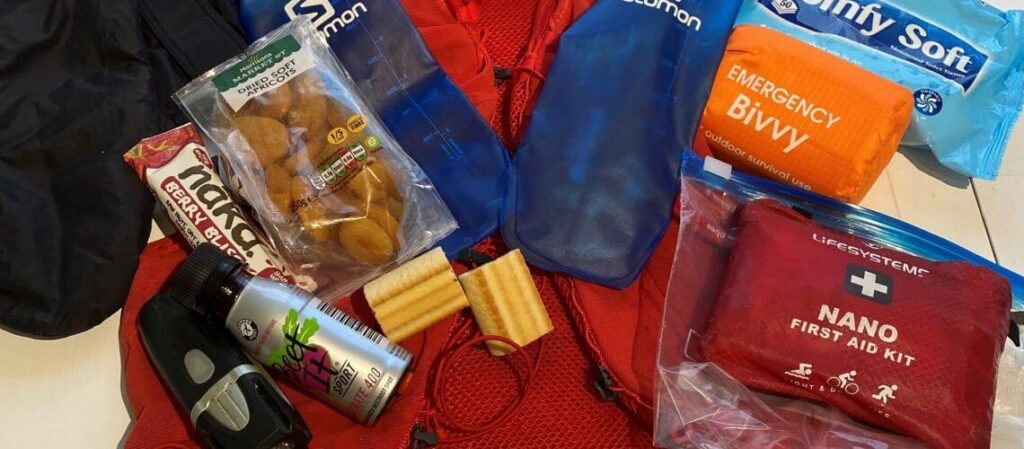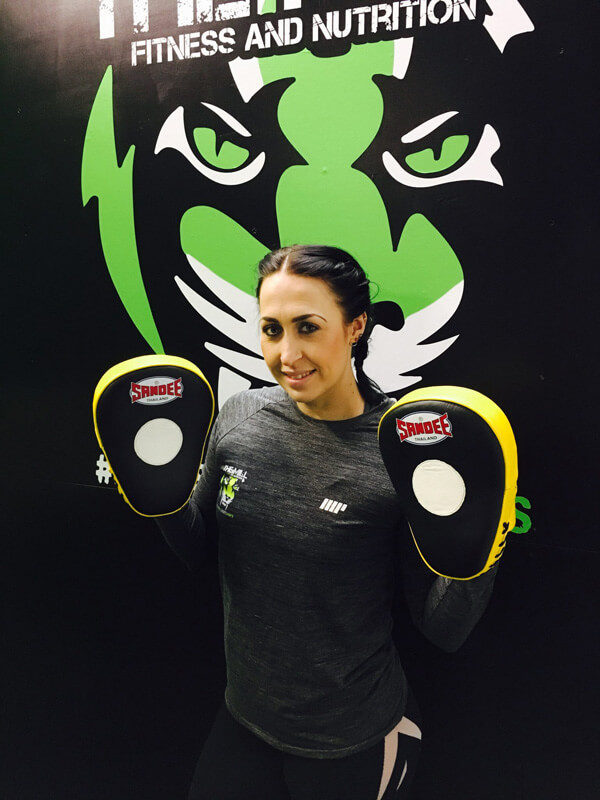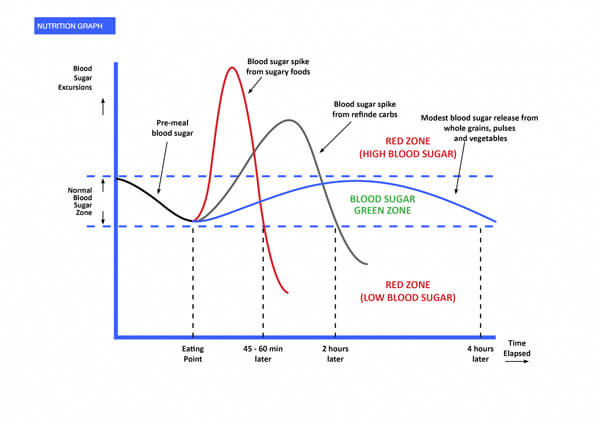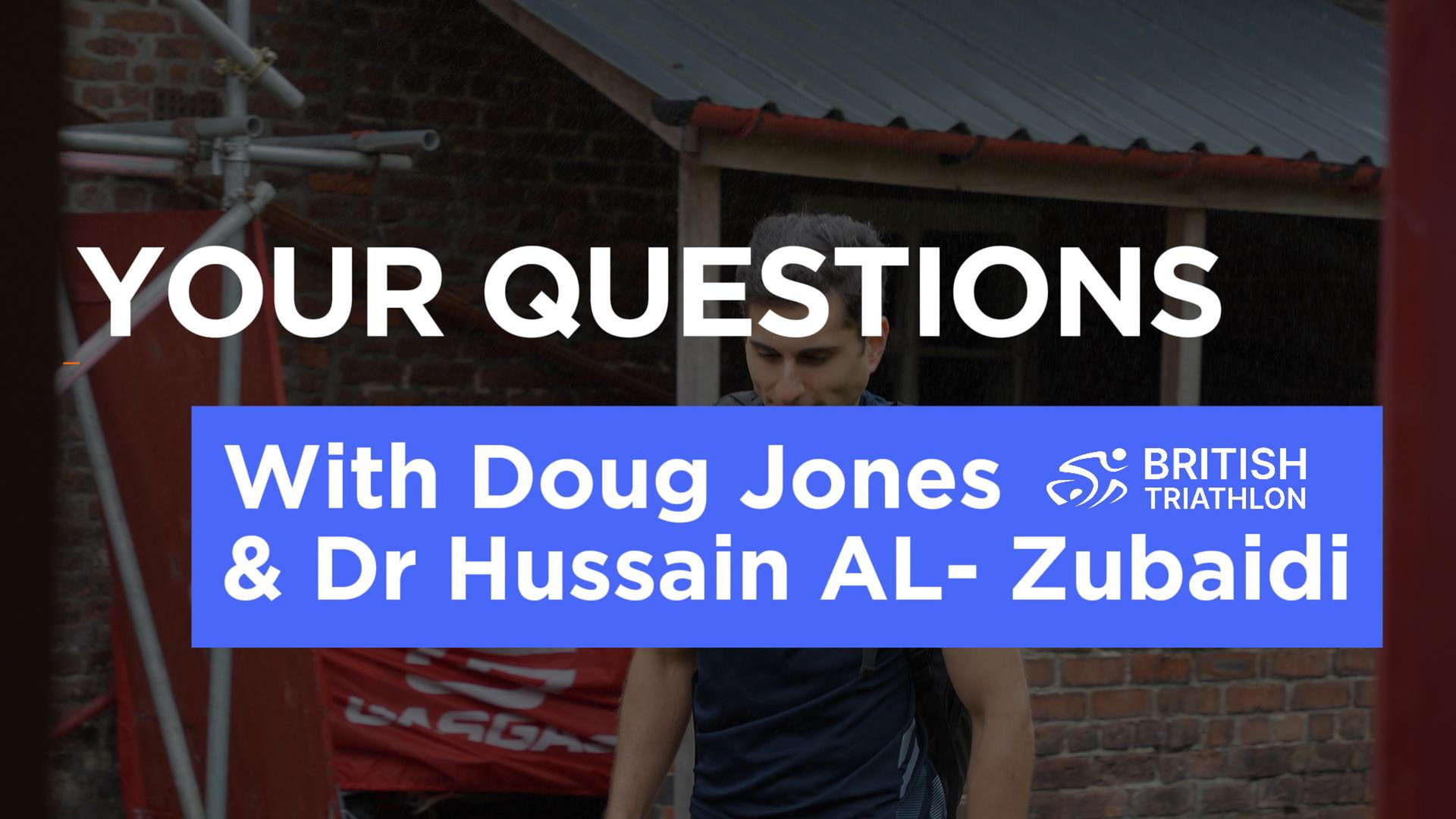
On Saturday 7 November, his 48th birthday, Gareth Kilshaw will run 127-miles in aid of the RNLI.
We’ve been following his thorough preparation – training, recovery, kit selection, strength & conditioning work - and in this post we speak to Lauren Bond who has encouraged Gareth to think differently about his food – his fuel.
As Gareth’s nutrition coach, Lauren had to rework some of his ‘traditional’ ideas about food and energy.
In other words, she made him quit the sweets during his runs. And she is not to be messed with:

“For him not to have that Haribo after the first 20 miles is going to make him go, what?! But he’s got to trust me!” she says.
Lauren started her career in the food industry, spending 10 years working for some major food brands building a deep knowledge of ingredients and food processes. She has been a fitness and nutrition coach for 4 years, working with runners, fighters, triathletes and Ironman competitors. Her approach is about simple, sustainable steps that build better eating habits.
Gareth required a unique nutrition plan that would provide him with enough fuel - not just during the run itself, but throughout his training.
Besides the Haribo addiction, Gareth’s diet has largely been based on things he’d read.
“He’s very in tune with his body. But little refinements make a massive difference,” Lauren explains. “It’s not rocket science - it’s simply about making sure your body’s fuelled for the demands being placed on it.”
Gareth’s exercise levels mean his calorie requirements are obviously much higher than a normal person. However, his nutrition plan had to account for more than food alone.
“If he were a full-time athlete, he’d have time to train, time to nap, time to get 8-10 hours sleep. But he’s not got that,” Lauren says. “We have to mitigate that stress he causes on his body and the running, as well as adding more calories. And they have to be good calories from wholesome and nutrient-rich foods.”
One of the first things she encountered with Gareth was his sweet tooth. When he first began working with Lauren, he relied heavily on refined sugar to get him through the races.
Sugar may provide a quick burst of energy, Lauren says, but that will be followed by a crash.

“You can do that for your last 10 miles, but for the base of the race you need to keep your blood sugar levels even.”
Instead, the main goal is to stop the sugar spikes. That means eating more complex carbohydrates that will allow him to store glycogen more efficiently and uses those stores more effectively when he’s running.
Lauren has taught Gareth that maintaining steady energy levels will contribute to a better performance and recovery. Many of her clients find that they’re not aching as much and have more energy to continue training.
“Providing your body with a better form of fuel means your body is more efficient at using it,” she says.
Pre-race nutrition
With any kind of long-distance running - particularly ultra-running - the trick is to keep the diet as normal as possible.
In the days leading up to an event, athletes should avoid deviating from their usual diet.
“The last thing we want is for him to get diarrhea or stomach cramps, so we’re not going to add anything in that he’s not used to eating,” Lauren says. “Everything will be tried and tested before the day.”
Traditionally, athletes prepared for a race day by “carb-loading” in the days beforehand. However, this school of thought has long been thrown out, especially for runners.
“For Gareth, that’s no good. He doesn’t want to be on that start line two kilos water-heavy,” Lauren says. She explains that each gram of glycogen is stored with at least 3 g of water, which means weight gain is a typical consequence of carb-loading in athletes.
In Gareth’s case, he would just be storing extra water he didn’t need.
“The last thing he wants to do is be eating pasta potatoes and all sorts of rubbish because it’s not suitable for the sport he does,” she says. “If you’re hydrating yourself properly throughout the race, your body doesn’t need that extra water. You don’t want to be heavy because you'll be lethargic.”
Instead, he could keep his calorie intake the same and taper off his training instead. This would mean his muscles store more glycogen, and he will be more rested and ready.
If all goes to plan, Gareth should be on the start line feeling no different from what he did the Saturday before.
Post-race nutrition
The right foods are crucial not only for getting through the race but for recovering afterward.
“The more good things you put in, the more good things you're gonna get out. That’s basic science,” Lauren says. “But if you've not fuelled yourself in the beginning, you're never going to recover.”
After completing the run, Gareth’s first priority will be a taper week. This will give his body a chance to recover properly and restore his calories. He also needs to ensure that his post race meals are rich in protein and carbs.
He can, however, be a little more ‘relaxed’ with his food choices.
“He has worked hard leading up to the race so a few days of eating his favourite foods after the race will do him no harm. It’ll help his body and mind recover,” Lauren says.
Perhaps a few beers could be just the ticket?
The Motivation – How Gareth came to Ultrarunning and the origin of this challenge
The Team – Different expertise. One goal.
Kit Selection – Tried, tested, and trusted
The Training Plan – Nicola's recipe for Gareth to be ready for the day

 British Triathlon: Recovery Questions Answered
British Triathlon: Recovery Questions Answered
 The Injury Risk Equation
The Injury Risk Equation
 LJMU Study Findings
LJMU Study Findings
 What are shin splints?
What are shin splints?
 How to treat shin splints [2021]
How to treat shin splints [2021]
No Thanks – I’ll pay full price
Close Window
Close Window
[…] do you get when you add up 12 weeks of training, a new diet, a recovery plan, targeted strength work, the “Carlsberg” of crews, 30+ hours of […]
[…] can read about the team, the training plan, his recovery protocols, nutrition and his kit selection […]
[…] have followed Gareth’s preparations. The training plan, fueling plan and recovery plan leading up to the […]
[…] https://riixo.com/gareth-127-nutrition/ […]
[…] detail. Of course there is the training plan but he has also considered his strength training, his nutrition, how he has recovered and even how he’s […]
[…] We speak to Gareth and his team, look at the training plan, recovery protocols, strength work and his nutrition. […]
[…] Nutrition : To keep the furnace stoked, see what Lauren changed in Gareth’s diet […]
[…] documented some of his preparations, his training, nutrition, strength & conditioning and recovery. In this post we look at the kit that Gareth has […]